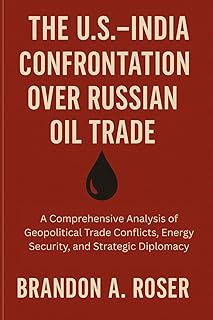Australia has taken a stand against the use of Russian oil products by joining a coalition of nations in implementing sanctions on Russian vessels and lowering the price cap on Russian oil. The move aims to weaken Russia’s war economy by restricting the trade of oil products refined from Russian crude.
Foreign Minister Penny Wong highlighted the significance of targeting Russia’s ‘shadow fleet’, vessels that evade international sanctions to support Russia’s economy during the conflict in Ukraine. The fleet, consisting of aging vessels, engages in deceptive practices to trade in Russian oil and other sanctioned goods.
While the recent sanctions on the shadow fleet may not have a direct impact on Australia, experts caution that the real issue lies in the import of oil products derived from Russian crude through third countries. The lack of mechanisms to track all oil products poses a challenge in preventing the flow of ‘Russian blood oil’ into Australia.
Senator Jacqui Lambie raised concerns about the importation of oil products refined from Russian crude, labeling it as “Russian blood oil”. Despite Australia’s ban on directly importing Russian oil, the country continues to receive refined petroleum products that may indirectly contribute to funding Russia’s invasion of Ukraine.
Australia has provided significant military and humanitarian aid to Ukraine since the Russian invasion, but the importation of oil products refined from Russian crude remains a glaring issue. Calls have been made to follow the European Union’s lead in banning imports of such products processed outside of Russia to exert more pressure on Russia’s oil revenues.
Experts suggest that Australia could explore various legal pathways to address the issue, including imposing sanctions on specific refineries in third countries or applying economic pressure on countries facilitating the trade of Russian oil products. Strengthening monitoring measures and closing loopholes in the supply chain are crucial steps in preventing inadvertent support for Russia’s war economy.
The Australian Federation of Ukrainian Organisations (AFUO) commended the government’s efforts to curb Russia’s oil revenues but emphasized the need to close all loopholes to prevent alternative channels for Russia to fund its military activities. Enhancing monitoring mechanisms and aligning with international efforts to ban imports of oil products refined from Russian crude are essential in holding businesses accountable for their supply chains.
As Australia evaluates its options to further pressure Russia’s oil revenues, the government faces growing calls to take more decisive actions in curbing the flow of ‘Russian blood oil’ into the country. The ongoing conflict in Ukraine underscores the urgency of addressing the loopholes that enable the indirect support of Russia’s war economy through the importation of oil products refined from Russian crude.
📰 Related Articles
- US Beef Imports to Australia Resume After Two-Decade Ban
- Thailand Tightens Regulations on Waste Paper Imports to Curb Contamination
- Russian Stock Market Surges Amid U.S. Sanctions Relief Talks
- Russian Stock Market Gains Amid Geopolitical Hopes and Oil Prices
- Oil and Gold Prices Drive Russian Stock Market Amid Geopolitical Uncertainties






